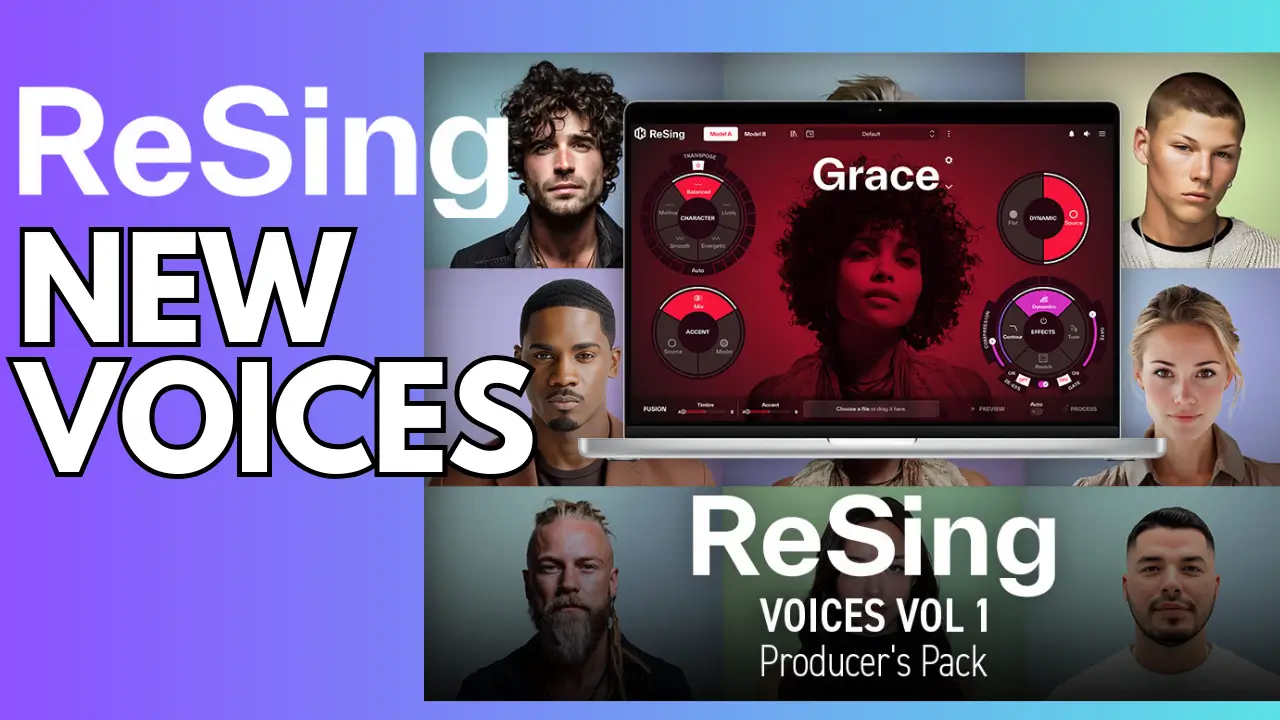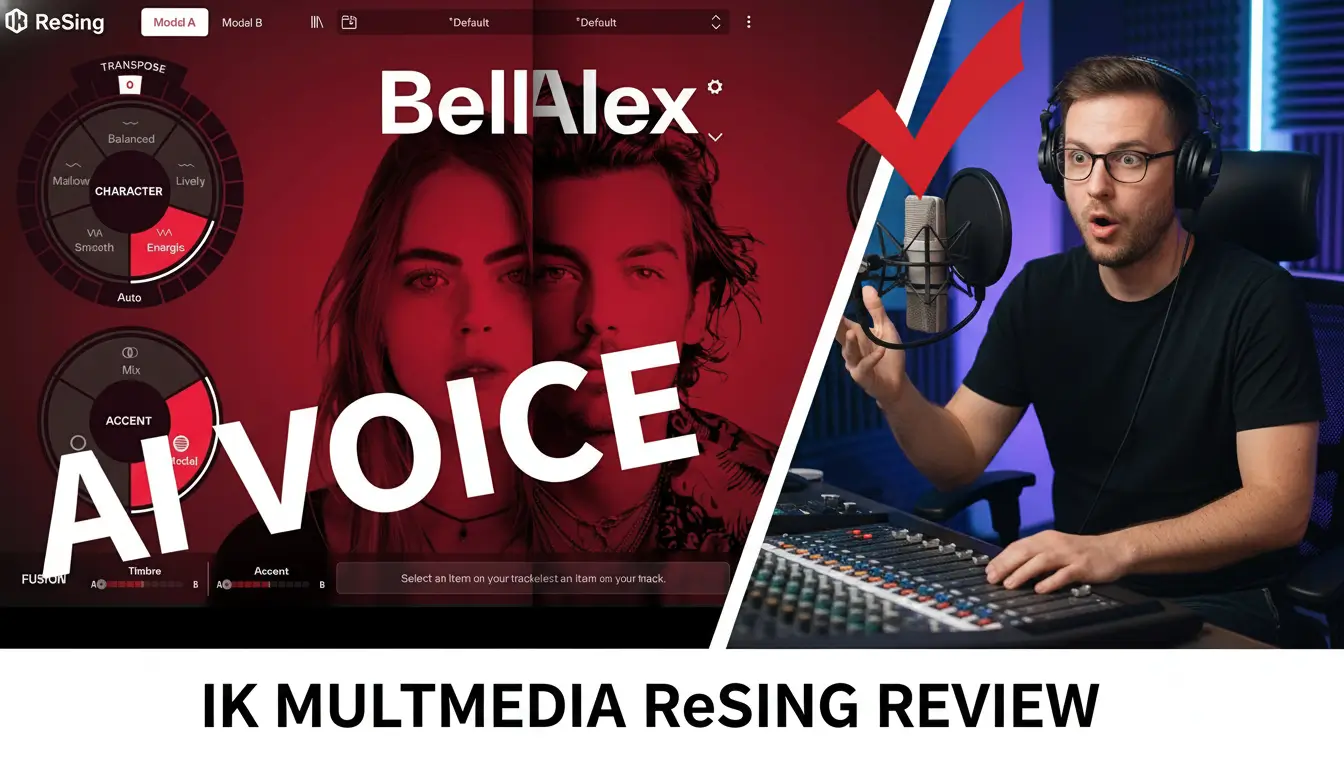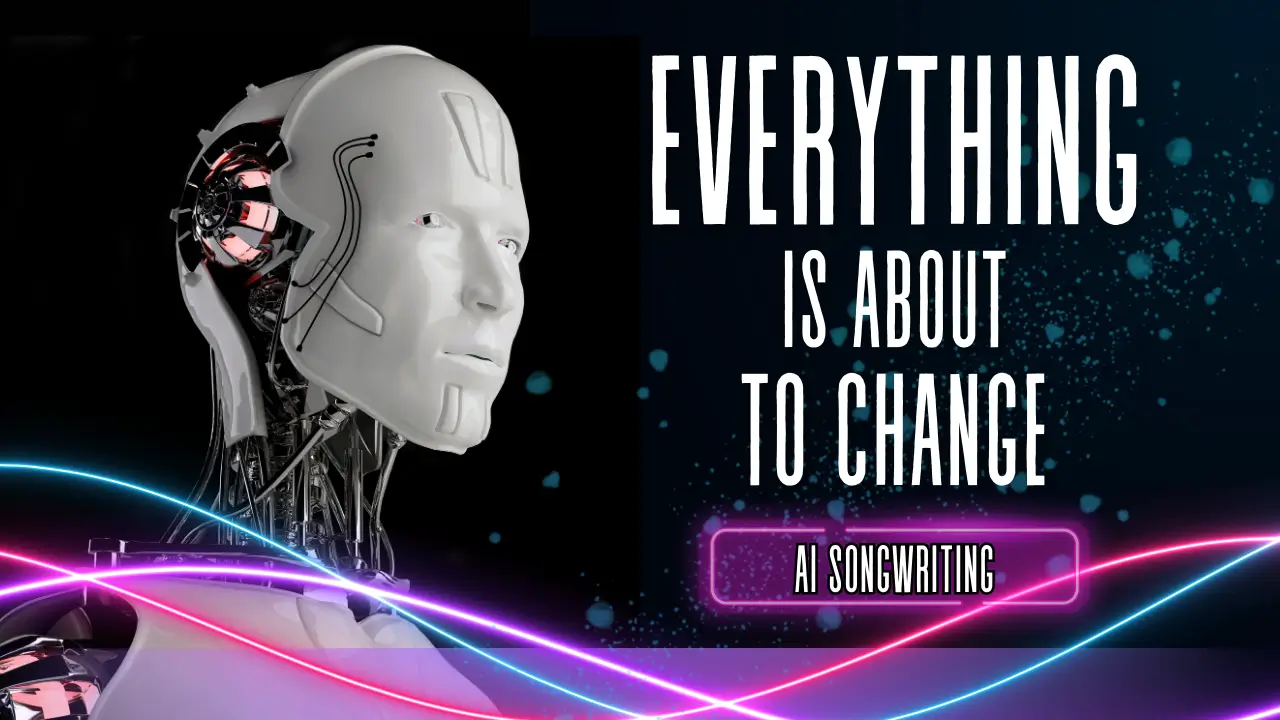I have always been fascinated by the art of crafting songs. A well-written tune captures emotions, tells a story, and creates connections. Normally, a pen, paper, and an instrument or two would do the job. But now, we’re witnessing a striking evolution: artificial intelligence stepping into the intimate space of songwriting.
In the past, songwriting relied on personal inspiration and the clink of piano keys or strums of a guitar. Collaboration meant late nights in studios, heads bowed together in creative fervor. Yet, with technology’s unstoppable march, we’ve seen electronic synthesizers and digital audio workstations change the game. These tools have been companions to songwriters, gently pushing the creative boundaries.
But what’s happening now is not just an incremental change; it’s a full-scale revolution. AI is not just a tool; it becomes a co-creator, capable of generating novel melodies and spinning verses that resonate. What once required human intuition, experience, and skill can now emerge, in part, from algorithms and machine learning models.
To some, this may sound like science fiction becoming reality. Maybe it raises a mix of intrigue and caution. How can AI compose music that traditionally relied on human emotion and abstract thought? How does it understand the nuances of tempo, genre, and soul that we hold so dear in music? Well, let’s carefully unpack how AI is seamlessly integrating into the songwriting process and explore how it melds with the deeply human art of music creation.
Demystifying AI Songwriting: What It Is and How It Works

I’d like to explain how AI is not a distant, complex enigma but a tool that’s increasingly accessible to creative individuals. At its heart, AI songwriting leverages algorithms to generate music and lyrics that resonate with human emotions. It does so by analyzing vast databases of songs to understand patterns in melody, rhythm, structure, and even lyrical content.
The core technologies in AI songwriting include machine learning, neural networks, and sometimes evolutionary algorithms. Machine learning allows AI to recognize and replicate typical song structures. Neural networks go further by processing and predicting sequences of notes that would likely follow one another, adapting to various styles. And evolutionary algorithms can iterate upon a theme, producing variations until it finds a composition that fits the desired criteria.
The AI works as a tool or assistant, offering snippets of melodies, chords, and sometimes entire song structures. You feed it a genre, a mood, or even a few musical ideas, and it generates options for you to consider. Some platforms even offer lyric generation, providing lines or full verses based on a theme or a set of keywords you provide.
We’ve seen this technology in action, collaborating with human songwriters to remarkable effect. AI helps to materialize the seed of an idea into a tangible piece of music. Moreover, it doesn’t discriminate with regard to style, effortlessly producing anything from classical to pop to experimental electronica.
It’s exciting, isn’t it? Another aspect is how AI platforms often learn from collaboration. So the more you work with the AI, the more it tunes into your unique style, essentially customizing itself to become a better creative partner over time.
The Benefits of AI for Aspiring and Professional Songwriters

Imagine the power to compose a haunting melody or an infectious chorus at the click of a button. For songwriters, AI is a game changer, offering a swath of advantages that can transform the way music is created. I’ll share with you just how significant these benefits are.
One notable advantage of AI is the remarkable SPEED and efficiency it brings to songwriting. With AI, a songwriter can explore a multitude of musical possibilities swiftly, often achieving in minutes what might have taken hours or even days. This quick turnaround is invaluable during tight deadlines or when inspiration is fleeting.
AI tools also offer a way around CREATIVE BLOCKS, which can be the bane of any artist’s existence. By suggesting chord progressions, melodies, and even lyrics, these tools can provide the initial spark needed to ignite the whole creative process. I have seen how a single AI-generated line can evolve into a complete, heartfelt song.
Moreover, AI enables personalization and adaptability like never before. Songwriters can tweak AI-generated suggestions to accommodate a wide range of music styles and preferences. This flexibility ensures that each artist’s voice remains distinct, while still benefiting from AI’s diverse capabilities.
Perhaps one of the most exciting aspects of AI in songwriting is the expansion of collaborative opportunities. Musicians around the world can now work together with AI as a partner, blending their unique sounds and cultures to create something truly innovative. This not only enhances the music but also fosters a global community of artists.
While these benefits are compelling, they only scratch the surface. The full potential of AI in songwriting is still unfolding as technology advances and artists continue to experiment. What’s clear is that AI is more than a mere tool; it’s a dynamic collaborator that’s reshaping the musical canvas.
The Creative Process Enhanced: Human + AI Collaboration

When we pair the imaginative power of human beings with the computational strength of artificial intelligence, we unlock a duo that can reshape the songwriting industry. I’ve observed how artists, who once relied entirely on their intuition and instruments, now lean on AI to refine melodies, harmonize backing tracks, and even inspire entire compositions.
I wish to highlight a few notable collaborations where AI and songwriters worked in unison to create something exceptional. These include projects like Taryn Southern’s album ‘I AM AI’ and AI Eurovision attempts, which hint at the vast potential of such partnerships.
In marrying creativity with analysis, there’s a dance of balance. Where does the lyricist’s touch end and the algorithm’s input begin? It’s a question that’s not only logical but also ethical, as the entire artistic community grapples with these new tools. The fear of depersonalization of art by technology lingers. Yet, when I see AI being used as nothing more than a sophisticated instrument, it reassures me — indicating a collaborative future rather than a competitive one.
Beyond noteworthy songs, there are also real-world implications for how AI influences the music industry. For instance, AI is pushing the boundaries of accessibility, allowing artists from different corners of the world to collaborate without being in the same room, overcoming historical barriers to entry in the music industry.
Challenges and Controversies Surrounding AI in Songwriting

Innovation isn’t without its critics. As AI takes a more prominent role in songwriting, several concerns arise. The question of originality in AI-generated music is a hot-button issue. Skeptics argue whether a song composed with AI’s assistance can be considered authentic, or if it’s simply a patchwork of algorithmically-generated cliches.
Then there’s copyright. Deciphering who owns the rights to a melody or lyric concocted by a machine can be a complex affair. Does the credit go to the programmer, the AI, the artist, or a combination of all three? This gray area poses a significant challenge for the future of music publishing.
Another point of contention is the potential over-reliance on AI. There’s a legitimate concern that AI might stifle human creativity, encouraging artists to lean too heavily on technology. This could lead to a homogenized music scene where unique, human quirks are ironed out by algorithmic precision.
And what of the job market for songwriters and musicians? As in many industries, AI’s ascent sparks fears of usurpation. While AI can augment the songwriting process, could it one day replace human songwriters entirely?
These questions require careful consideration. As we critically examine AI’s role in music, we ensure that it serves to enhance, not hinder, our creative expressions. After all, the greatest symphonies are those where every instrument, human or AI, plays its part in harmony.
The Future Soundscape: Envisioning AI’s Ongoing Role in Music

As I look toward the horizon of the music industry, it’s clear that AI isn’t just a fleeting trend; it’s poised to be a stalwart companion in songwriting. The tools that we see today are only the beginning. I imagine AI growing more intuitive, capable of understanding and adapting to the nuanced preferences of artists and listeners alike. Picture a future where AI technologies are standard in every songwriter’s toolkit, much like the instruments we use now.
What might happen next in this blend of AI and music? It’s reasonable to expect AI to continue pushing boundaries, lending its hand to emerging genres, or even creating new ones. The role of AI in music education seems particularly promising. I anticipate a time when AI will be used to nurture the creative instincts of students, offering personalized feedback and fostering a deeper understanding of musical theory.
And let’s not forget the commercial landscape. AI can serve as a powerful ally in effectively targeting music to listener preferences, revolutionizing how music is marketed and consumed. The implications for music production and distribution are immense, potentially altering the very fabric of the music industry’s business model.
Yet, with every forward step, it’s crucial to retain the essence of what makes music human: the emotions, stories, and connections that songs create. AI may be revolutionizing the songwriting process, but the soul of music will always belong to the human spirit. As we embrace the evolving partnership between AI and artists, we safeguard that soul by guiding AI with our unique humanity.
In closing, AI’s role in music is not just about technological evolution; it’s about expanding the canvas upon which we paint our auditory masterpieces. With AI, we’re not replacing the artist; we’re amplifying the potential to create, to innovate, and to connect. That is the true harmony of AI and music— a duet that could forever change how we conceive and experience the songs of tomorrow.
Related Posts:
- EZMIX 3 AI Mastering – First Look Video
- Grok2 Image Generator
- AI Vocals & Sample Packs 4 PLUGINS THAT SING
-
ReSing Voices Vol 1 Producer’s Pack Review: AI Vocals for Modern Music Production

ReSing Voices Vol 1 Producer’s Pack Delivers Eight AI-Powered Vocals For Pop, R&B, Gospel, Latin, And Metal Productions Using IK Multimedia’s ReSing Platform
-
FREE UA 610 Tube Preamp & EQ Collection (Limited Time)

Universal Audio Is Offering The Ua 610 Tube Preamp & Eq Collection For Free, Delivering Classic Analog Warmth, Tube Saturation, And Musical Eq For A Limited Time.
-
ReSing Max Review: This Plugin Replaces Your Singer… And It Actually Works

As a music producer and songwriter, I’ve always chased that elusive “pro” vocal sound without breaking the bank on session singers. Enter ReSing by IK Multimedia – an AI-powered vocal transformation tool that’s equal parts wizardry and workflow game-changer. In my latest video above, I dive deep into hands-on demos, from swapping my narration voice…


Leave a Reply